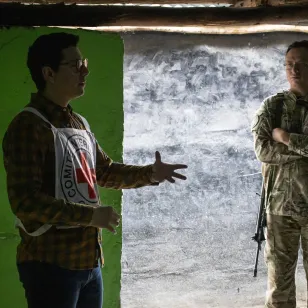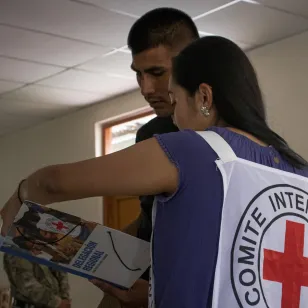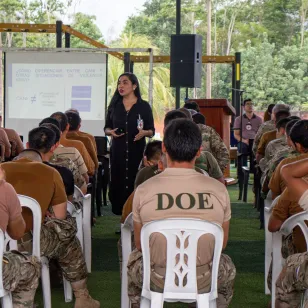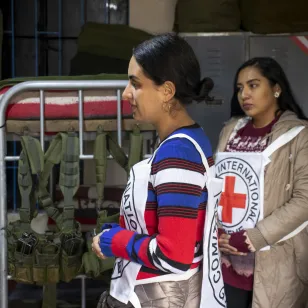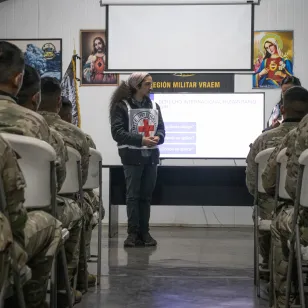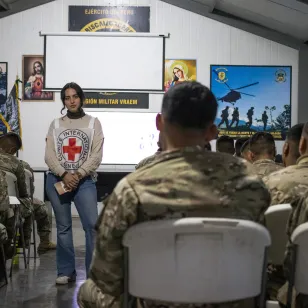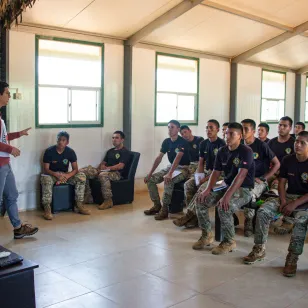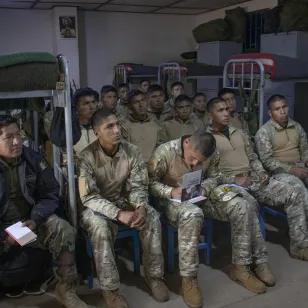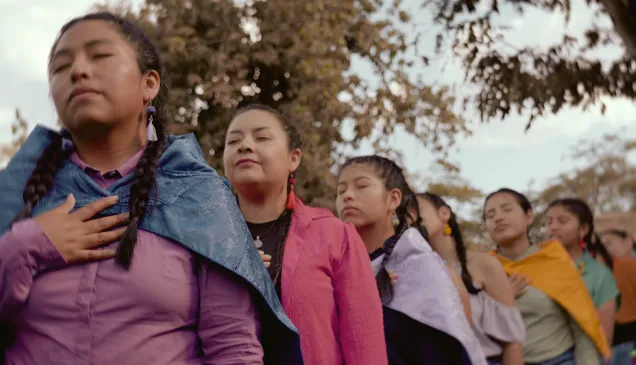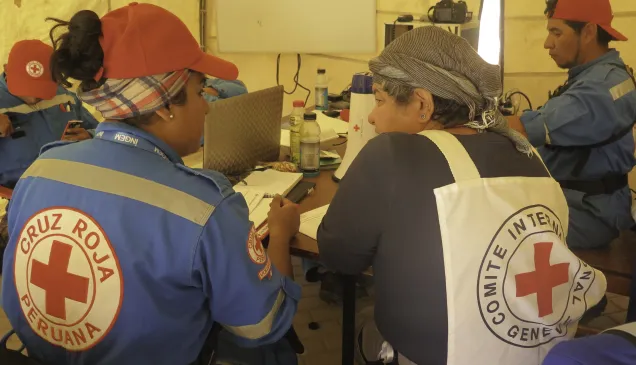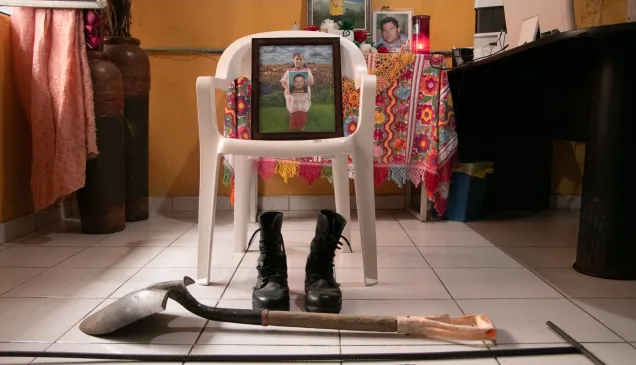Peru: Soldiers at VRAEM bases learn the rules of war
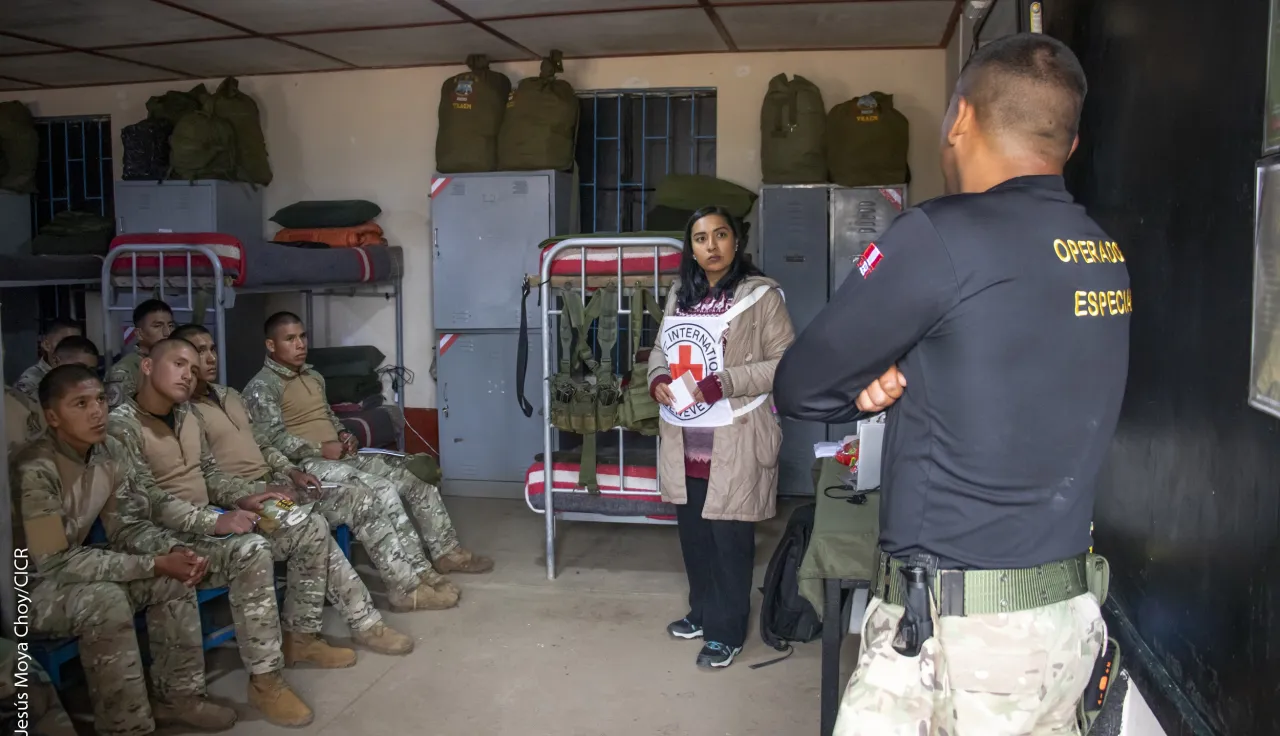
The remote valley of the rivers Apurímac, Ene and Mantaro (VRAEM by its Spanish acronym) in Peru is the site of frequent armed clashes. To help ensure that the local people are protected from the effects of the fighting, the International Committee of the Red Cross (ICRC) has been maintaining dialogue with the armed forces stationed in the valley and helping to expand their knowledge of international humanitarian law (IHL), also known as the law of war.
The ICRC holds introductory IHL workshops on the valley’s military bases, both in the jungle and in the mountains. The training focuses on determining when IHL applies and how to apply its basic principles, such as making a distinction between military objectives and civilian objects (since direct attacks on civilians and civilian objects are not allowed), the need to assess the proportionality of each attack, and the precautionary measures that must be taken in the conduct of hostilities. Given that the armed forces also carry out domestic law and order duties in some districts, the training also covers the differences between applying IHL rules and the use of force in other situations of violence.
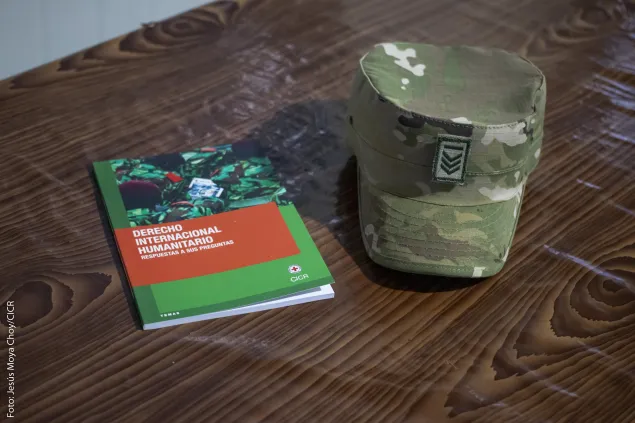
The ICRC holds introductory IHL workshops on the valley’s military bases, both in the jungle and in the mountains. The training focuses on determining when IHL applies and how to apply its basic principles, such as making a distinction between military objectives and civilian objects (since direct attacks on civilians and civilian objects are not allowed), the need to assess the proportionality of each attack, and the precautionary measures that must be taken in the conduct of hostilities. Given that the armed forces also carry out domestic law and order duties in some districts, the training also covers the differences between applying IHL rules and the use of force in other situations of violence.
Applying IHL principles helps prevent violations of IHL and the improper use of force, improve relations between the military and the local population, and ensure that military operations respect human dignity. This aligns with the ICRC’s mission, as a neutral, independent and impartial humanitarian organization, to minimize human suffering. Teaching these norms in a military environment is therefore not only part of the ICRC’s work as the guardian of IHL, but also a humanitarian necessity to protect the people affected by armed conflict.

